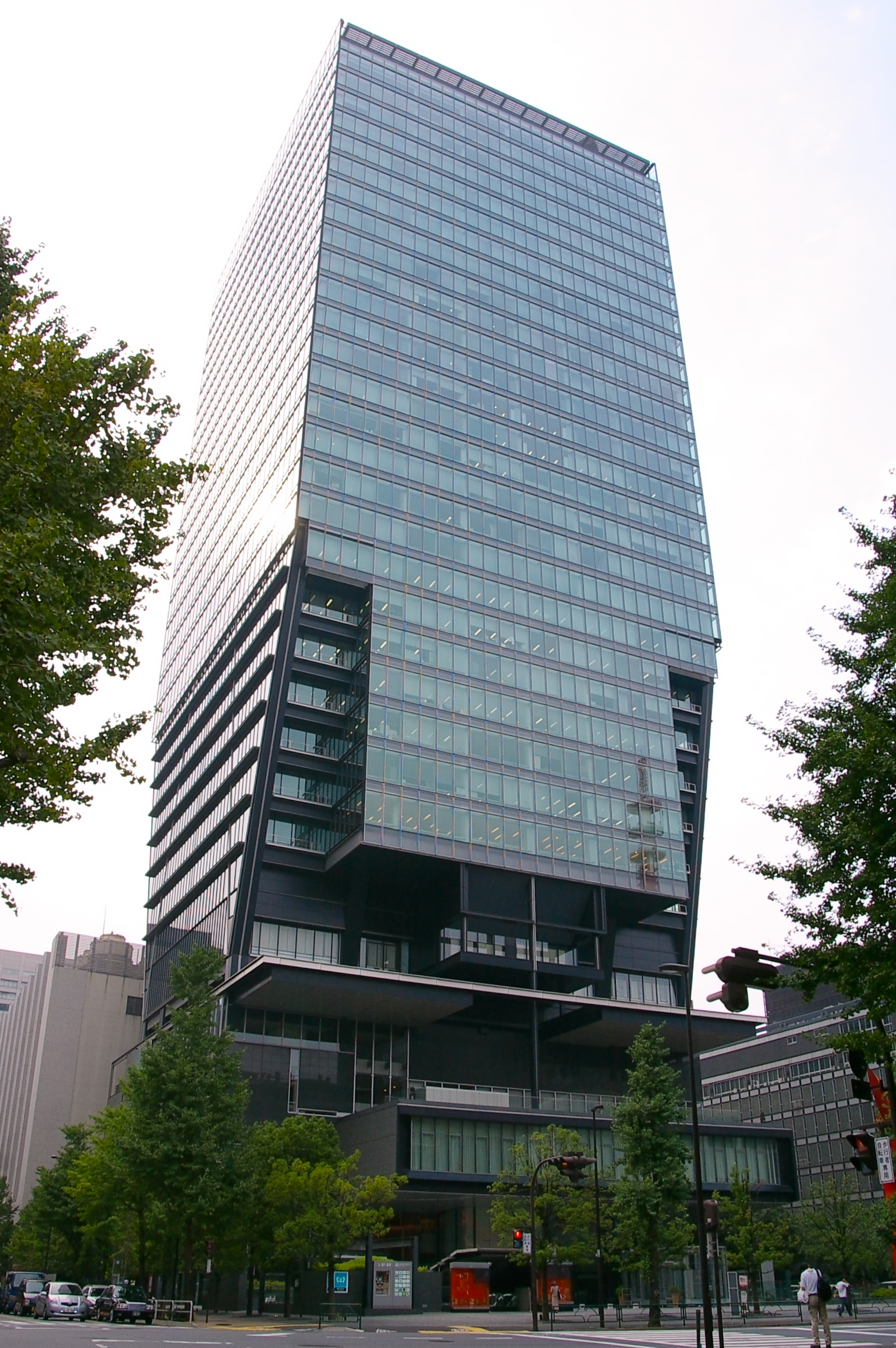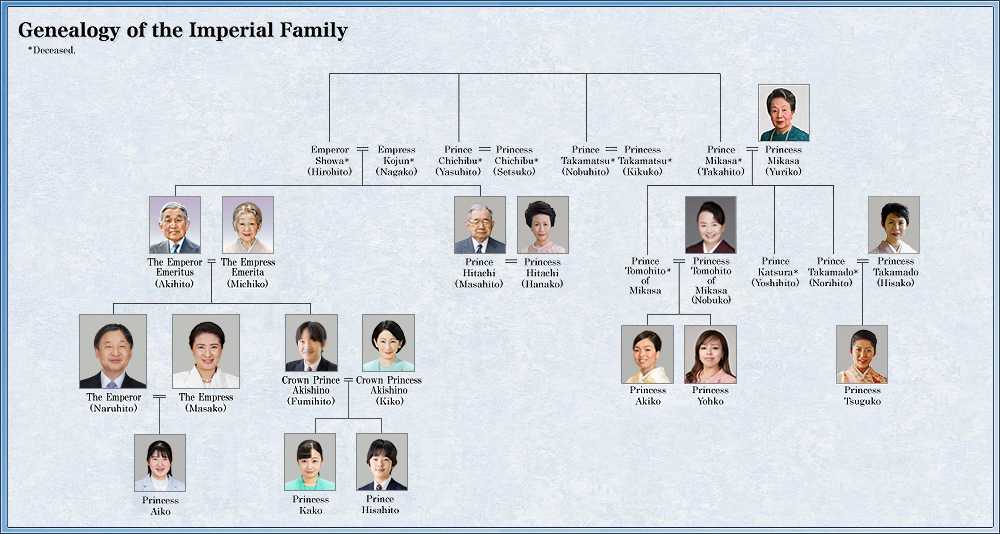|
Shingo Haketa
is a Japanese bureaucrat. He served as Grand Steward of the Imperial Household Agency from 1 April 2005 to 1 June 2012. Appointed by Prime Minister Junichirō Koizumi, promoter of absolute primogeniture, Haketa is known as a supporter of the report submitted by the , recommending absolute primogeniture. He criticized Prince Tomohito of Mikasa for his comment that agnatic primogeniture should be kept, and requested the members of the Imperial House to refrain from expressing their opinion on the succession. Right after the birth of Prince Hisahito of Akishino, he commented that the newborn prince would not solve the succession crisis, and insisted that the law be changed. In November 2011, he held a meeting with Prime Minister Yoshihiko Noda to discuss the possibility for allowing women to head branches of the Imperial House (rather than to lose imperial status upon marriage), in order to replenish the number of imperial members who can help fulfill the court-related duties He had ... [...More Info...] [...Related Items...] OR: [Wikipedia] [Google] [Baidu] |
Grand Steward
The is the head department of the Imperial Household Agency of Japan. History The origins of the structure of the Imperial Household can be traced back to the reign of Emperor Monmu, with the organisation of the government structure in 701 AD. Prince Naruhito, in May 2004, criticized the then-grand steward, Toshio Yuasa, for putting pressure on Masako Owada, Naruhito's wife, to bear a male child. At a press conference, Naruhito said that his wife had "completely exhausted herself" trying to adapt to royal life, and added "there were developments that denied Masako's career (up to our marriage) as well as her personality". Japan Policy and Politics, 24 May 2004 Organisation The is the head of the secretariat, an ...[...More Info...] [...Related Items...] OR: [Wikipedia] [Google] [Baidu] |
Imperial Household Law
is a statute in Japanese law that governs the line of imperial succession, the membership of the imperial family, and several other matters pertaining to the administration of the Imperial Household. In 2017, the National Diet changed the law to enable the Emperor to abdicate within three years. With this change, Emperor Akihito abdicated on 30 April 2019. Passage of the law The Imperial Household Law was passed during the Shōwa era on January 16, 1947, by the last session of the Imperial Diet. This law superseded the Imperial Household Law of 1889, which had enjoyed co-equal status with the Constitution of the Empire of Japan and could only be amended by the Emperor. The revised statute is subordinate to the Constitution of Japan, which went into effect on May 3, 1947. It develops Chapter 1: Article 2 of the Constitution of Japan, which states: "The Imperial Throne shall be dynastic and succeeded to in accordance with the Imperial House Law passed by the Diet". Draft and in ... [...More Info...] [...Related Items...] OR: [Wikipedia] [Google] [Baidu] |
1942 Births
Year 194 ( CXCIV) was a common year starting on Tuesday (link will display the full calendar) of the Julian calendar. At the time, it was known as the Year of the Consulship of Septimius and Septimius (or, less frequently, year 947 ''Ab urbe condita''). The denomination 194 for this year has been used since the early medieval period, when the Anno Domini calendar era became the prevalent method in Europe for naming years. Events By place Roman Empire * Emperor Septimius Severus and Decimus Clodius Septimius Albinus Caesar become Roman Consuls. * Battle of Issus: Septimius Severus marches with his army (12 legions) to Cilicia, and defeats Pescennius Niger, Roman governor of Syria. Pescennius retreats to Antioch, and is executed by Severus' troops. * Septimius Severus besieges Byzantium (194–196); the city walls suffer extensive damage. Asia * Battle of Yan Province: Warlords Cao Cao and Lü Bu fight for control over Yan Province; the battle lasts for over 100 ... [...More Info...] [...Related Items...] OR: [Wikipedia] [Google] [Baidu] |
People From Yamaguchi Prefecture
A person ( : people) is a being that has certain capacities or attributes such as reason, morality, consciousness or self-consciousness, and being a part of a culturally established form of social relations such as kinship, ownership of property, or legal responsibility. The defining features of personhood and, consequently, what makes a person count as a person, differ widely among cultures and contexts. In addition to the question of personhood, of what makes a being count as a person to begin with, there are further questions about personal identity and self: both about what makes any particular person that particular person instead of another, and about what makes a person at one time the same person as they were or will be at another time despite any intervening changes. The plural form "people" is often used to refer to an entire nation or ethnic group (as in "a people"), and this was the original meaning of the word; it subsequently acquired its use as a plural form of per ... [...More Info...] [...Related Items...] OR: [Wikipedia] [Google] [Baidu] |
Government Ministers Of Japan
A government is the system or group of people governing an organized community, generally a state. In the case of its broad associative definition, government normally consists of legislature, executive, and judiciary. Government is a means by which organizational policies are enforced, as well as a mechanism for determining policy. In many countries, the government has a kind of constitution, a statement of its governing principles and philosophy. While all types of organizations have governance, the term ''government'' is often used more specifically to refer to the approximately 200 independent national governments and subsidiary organizations. The major types of political systems in the modern era are democracies, monarchies, and authoritarian and totalitarian regimes. Historically prevalent forms of government include monarchy, aristocracy, timocracy, oligarchy, democracy, theocracy, and tyranny. These forms are not always mutually exclusive, and mixed gov ... [...More Info...] [...Related Items...] OR: [Wikipedia] [Google] [Baidu] |
Sankei Shimbun
The (short for ) is a daily newspaper in Japan published by the It has the seventh-highest circulation for regional newspapers in Japan. Among Japanese newspapers, the circulation is second only to ''Yomiuri Shimbun'', Seikyo Shimbun, ''Asahi Shimbun'', ''Chunichi Shimbun'', ''Mainichi Shimbun'', ''the Nikkei'', Nikkan Gendai, and Tokyo Sports. This newspaper is not actually a national newspaper, but a block newspaper whose publishing area is Kansai and Kanto. However, it was classified as a "national newspaper" by the reverse course policy of the business world (Keidanren). Corporate profile The ''Sankei Shimbun'' is part of the Fujisankei Communications Group and is 40% owned by Fuji Media Holdings. The company is also the owner of Osaka Broadcasting Corporation (OBC, Radio Osaka). History The ''Sankei Shimbun'' was created by the merger of two older newspapers: ''Jiji News'' and ''Nihon Kogyō Shimbun''. ''Jiji News'' was founded in 1882 by author, translator, and jour ... [...More Info...] [...Related Items...] OR: [Wikipedia] [Google] [Baidu] |
Japanese Succession Controversy
From 2005 to 2012, Japan discussed the possibility of changing the laws of succession to the Chrysanthemum Throne, which is currently limited to males of the Japanese Imperial Family. As of 2021, there are three people in the line of succession to the current Emperor Naruhito: Crown Prince Akishino, Prince Hisahito, and Prince Hitachi. Prior to the birth of Prince Hisahito in 2006, the government of Japan considered changes to the Imperial Household Law to allow additional potential successors to the throne. Background Traditionally, the imperial throne was passed on under custom which resembled the rule of agnatic seniority. Theoretically, any male or female with patrilineal lineage to early Japanese monarchs, who descended in direct male line from the first emperor, Jimmu, could come to hold the throne. In practice, preference was given to first-born male offspring of a preceding male monarch, followed by his brothers, sons, other males of the immediate male-line fami ... [...More Info...] [...Related Items...] OR: [Wikipedia] [Google] [Baidu] |
Jiji Press
is a news agency in Japan. History Jiji was formed in November 1945 following the breakup of Domei Tsushin, the government-controlled news service responsible for disseminating information prior to and during World War II. Jiji inherited Domei's business-oriented news operations, while Kyodo News inherited its general public-oriented news operations. In later years Jiji developed ties with UPI, the Associated Press, AFP, Reuters and other international news organizations. In 2011, Jiji reported that Olympus CEO Michael Woodford blackmailed company management into appointing him CEO in exchange for promises to cover up an accounting fraud scandal. Woodford argued that "the so-called unnamed sources at Olympus had clearly lied, ndJiji had without proper scrutiny and challenge simply reported those lies." Jiji later withdrew the report and apologized. In 2012, Jiji president Masahiro Nakata resigned after it was found that a Jiji writer in Washington, D.C. copied an article ... [...More Info...] [...Related Items...] OR: [Wikipedia] [Google] [Baidu] |
Japan Times
''The Japan Times'' is Japan's largest and oldest English-language daily newspaper. It is published by , a subsidiary of News2u Holdings, Inc.. It is headquartered in the in Kioicho, Chiyoda, Tokyo. History ''The Japan Times'' was launched by Motosada Zumoto on 22 March 1897, with the goal of giving Japanese people an opportunity to read and discuss news and current events in English to help Japan to participate in the international community. The newspaper was independent of government control, but from 1931 onward, the paper's editors experienced mounting pressure from the Japanese government to submit to its policies. In 1933, the Japanese Ministry of Foreign Affairs appointed Hitoshi Ashida, former ministry official, as chief editor. During World War II, the newspaper served as an outlet for Imperial Japanese government communication and editorial opinion. It was successively renamed ''The Japan Times and Mail'' (1918–1940) following its merger with ''The Japan Ma ... [...More Info...] [...Related Items...] OR: [Wikipedia] [Google] [Baidu] |
Kyodo News
is a nonprofit cooperative news agency based in Minato, Tokyo. It was established in November 1945 and it distributes news to almost all newspapers, and radio and television networks in Japan. The newspapers using its news have about 50 million subscribers. K. K. Kyodo News is Kyodo News' business arm, established in 1972.Shrivastava, K. M. (2007). ''News agencies from pigeon to internet.'' Sterling Publishers Pvt. Ltd. p. 208. . The subdivision Kyodo News International, founded in 1982, provides over 200 reports to international news media and is located in Rockefeller Center, New York City. Their online news site is in Japanese, Chinese ( Simplified and Traditional), Korean, and English. The agency employs over 1,000 journalists and photographers, and maintains news exchange agreements with over 70 international media outlets. Satoshi Ishikawa is the news agency's president. Kyodo News was formed by Furuno Inosuke, the president of the Domei News Agency, following the d ... [...More Info...] [...Related Items...] OR: [Wikipedia] [Google] [Baidu] |
Noriyuki Kazaoka .
Noriyuki Kazaoka ( ja, 風岡典之) (born September 15, 1946) was Grand Steward of the Imperial Household Agency from 1 Jun 2012 – 26 Sep 2016. He was born in Niigata Prefecture and worked at the Ministry of Construction (Japan) was a government ministry of Japan headquartered in Kasumigaseki, Chiyoda, Tokyo. References {{DEFAULTSORT:Kazaoka, Noriyuki 1946 births People from Niigata Prefecture Living people ...[...More Info...] [...Related Items...] OR: [Wikipedia] [Google] [Baidu] |
Ministry Of Health, Labour, And Welfare
The is a cabinet level ministry of the Japanese government. It is commonly known as in Japan. The ministry provides services on health, labour and welfare. It was formed with the merger of the former Ministry of Health and Welfare or and the Ministry of Labour or . The Minister of Health, Labour and Welfare is a member of the Cabinet and is chosen by the Prime Minister, typically from among members of the Diet. Organization The ministry contains the following sections as of 2019: * The Minister's Secretariat (including the Statistics and Information Department) * The Health Policy Bureau * The Health Service Bureau * Pharmaceutical and Food Safety Bureau (including the Food Safety Department) * The Labour Standards Bureau (including the Industrial Safety and Health Department, Workers Compensation Department, and Workers' Life Department) * The Employment Security Bureau (including the Employment Measures for the Elderly and Persons with Disabilities Department) * The Hum ... [...More Info...] [...Related Items...] OR: [Wikipedia] [Google] [Baidu] |
_1938.jpg)


